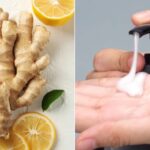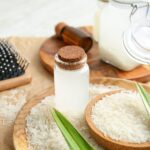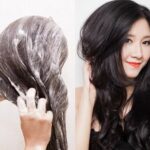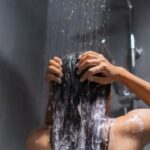What is the No-Poo Method?
The No-Poo method, also known as No Shampoo, is a hair care approach that avoids the use of conventional shampoos. Instead of relying on shampoos with strong detergents (such as sulfates), adherents of this method explore natural ways to clean their hair or use products free from artificial detergents. The primary goal of the No-Poo method is to preserve the natural oils produced by the scalp, promoting healthier, less dry, and less damaged hair.
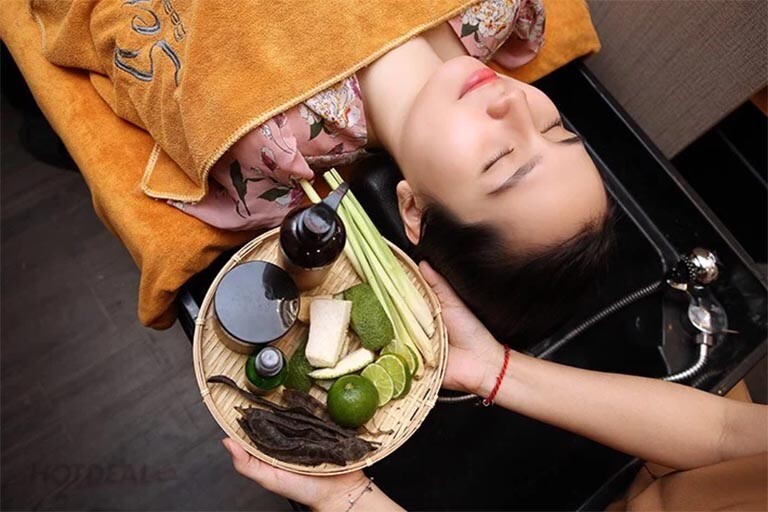
The No-Poo method involves saying “no” to artificial shampoos.
Why Do People Choose No-Poo?
There are several reasons why people are drawn to this trend. One of the most common motivations is the desire to preserve the natural oils produced by the scalp. Many individuals worry that shampoos with strong detergents strip away natural moisture, leading to dry and frizzy hair. Additionally, some people aim to reduce their exposure to artificial chemicals found in modern hair care products.
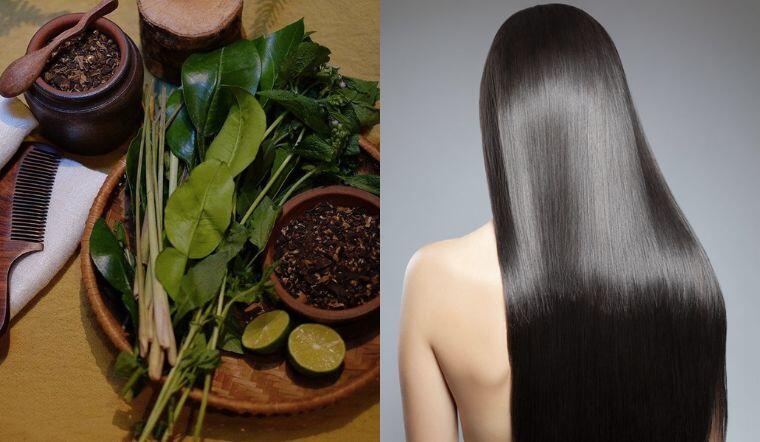
No-Poo helps maintain natural moisture in the hair and reduces the use of harmful chemical products.
However, this method requires a transition period for the hair and scalp to adapt. During the shift from shampoo to No-Poo, the scalp may produce more oil than usual as it adjusts its oil production. Over time, many people find that the scalp self-regulates, and the amount of oil decreases, resulting in smooth hair without the need for shampoo.
Benefits of Avoiding Shampoo
Proponents of the No-Poo movement argue that giving up shampoo offers numerous benefits for hair and scalp health. Specifically, hair can become stronger as the scalp adjusts to produce a more balanced amount of natural oils. Thicker, bouncier, and softer hair are also among the advantages observed by many individuals.
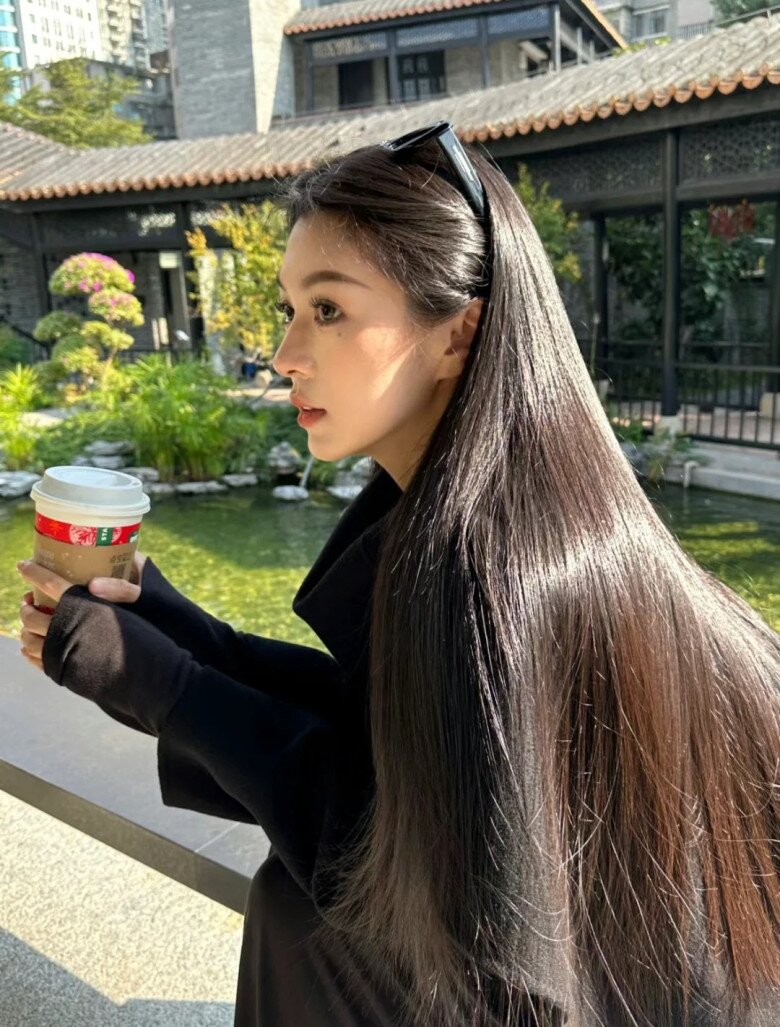
Additionally, not using shampoo reduces exposure to irritating chemicals, lowers the need for hair styling products, and significantly cuts down on packaging waste.
Who Should Try No-Poo?
Experimenting with the No-Poo trend carries little risk. However, if you have a history of skin or scalp issues, it is advisable to consult a dermatologist before making the switch. Additionally, individuals with thin or fine hair may find it more challenging to adopt the No-Poo method as their hair tends to get oily faster. To mitigate this, you can try increasing the time between washes before completely discontinuing shampoo.
For those with curly or coarse hair, forgoing shampoo can bring more noticeable benefits as the natural oils from the scalp help smoothen and tame frizz.
Does No-Poo Really Work?
In reality, there is no one-size-fits-all No-Poo method. To determine if this approach is suitable for you, a period of experimentation and adjustment is necessary. One of the biggest challenges when starting out is the greasy hair phase. This occurs because the scalp needs time to recalibrate its natural oil production after being stripped of its natural oils by shampoo detergents.

While there is a lack of scientific evidence proving the effectiveness of No-Poo, many individuals are satisfied with the results they achieve.
No-Poo Methods You Can Try at Home
The No-Poo trend is not entirely new. In the past, Vietnamese women relied on natural herbs to care for their hair. In various forums, they share traditional secrets for achieving thick and beautiful hair naturally:
1. Cleansing with Soapberry (Bồ kết):
Soapberry is a well-known traditional hair cleansing agent praised for its ability to clean hair and promote black, smooth hair. Soapberries contain saponin, a natural foaming agent with antibacterial properties that help clean the scalp and reduce dandruff. To use, simply roast or sun-dry the soapberries, then boil them to create a natural hair cleansing solution.
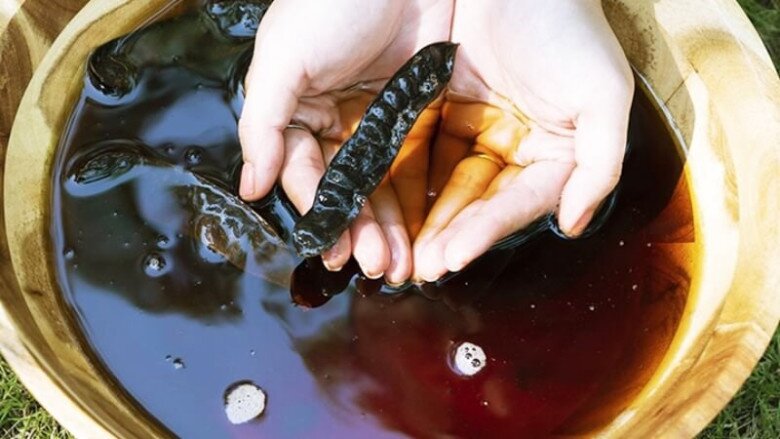
Cleansing the hair with soapberry is a natural, safe, and effective hair care method.
2. Grapefruit Peel and Lemongrass:
Grapefruit peel is rich in essential oils that help smoothen hair, stimulate hair growth, and reduce hair loss. When combined with lemongrass, which has antibacterial properties and a pleasant aroma, this duo becomes a popular hair cleansing method that strengthens hair and leaves it smelling fresh. Simply boil grapefruit peel and lemongrass together and use the water to wash your hair.
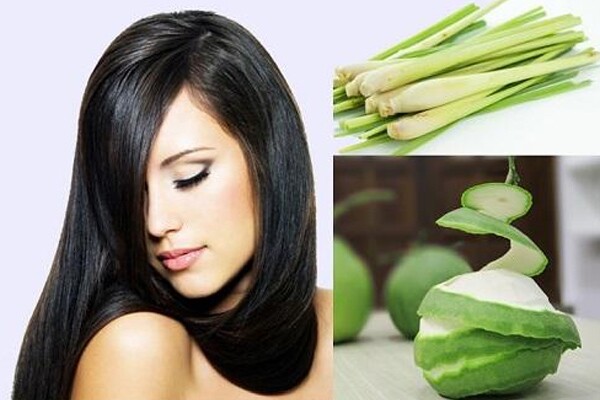
In addition to being cost-effective, cleansing the hair with grapefruit peel and lemongrass infuses a lasting fragrance into your locks.
3. Pennywort and Indian Senna (Hương nhu):
Pennywort is used to treat itchy scalp and reduce dandruff, while Indian Senna stimulates hair growth and nourishes hair from root to tip. This method is ideal for those seeking a natural, chemical-free approach to hair care.
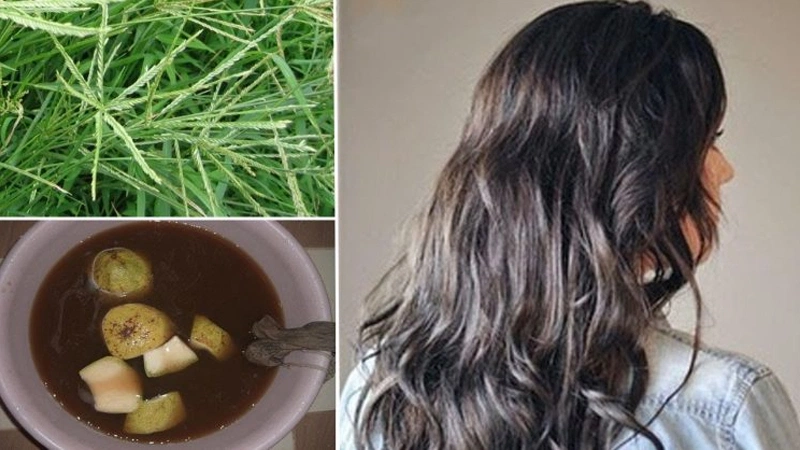
Both pennywort and Indian Senna strengthen the hair roots, stimulate hair growth, and effectively prevent hair loss.
The Ultimate Guide to Summer Hair Care: Say Goodbye to Dandruff and Hair Fall
Summer is a season of scorching sun and dry air, which can take a toll on your hair. Without proper care, your locks may suffer from dandruff, dryness, and increased breakage. It is important to pay extra attention to your hair care routine, especially when it comes to washing your hair, to maintain its health and vitality during this harsh season.


























